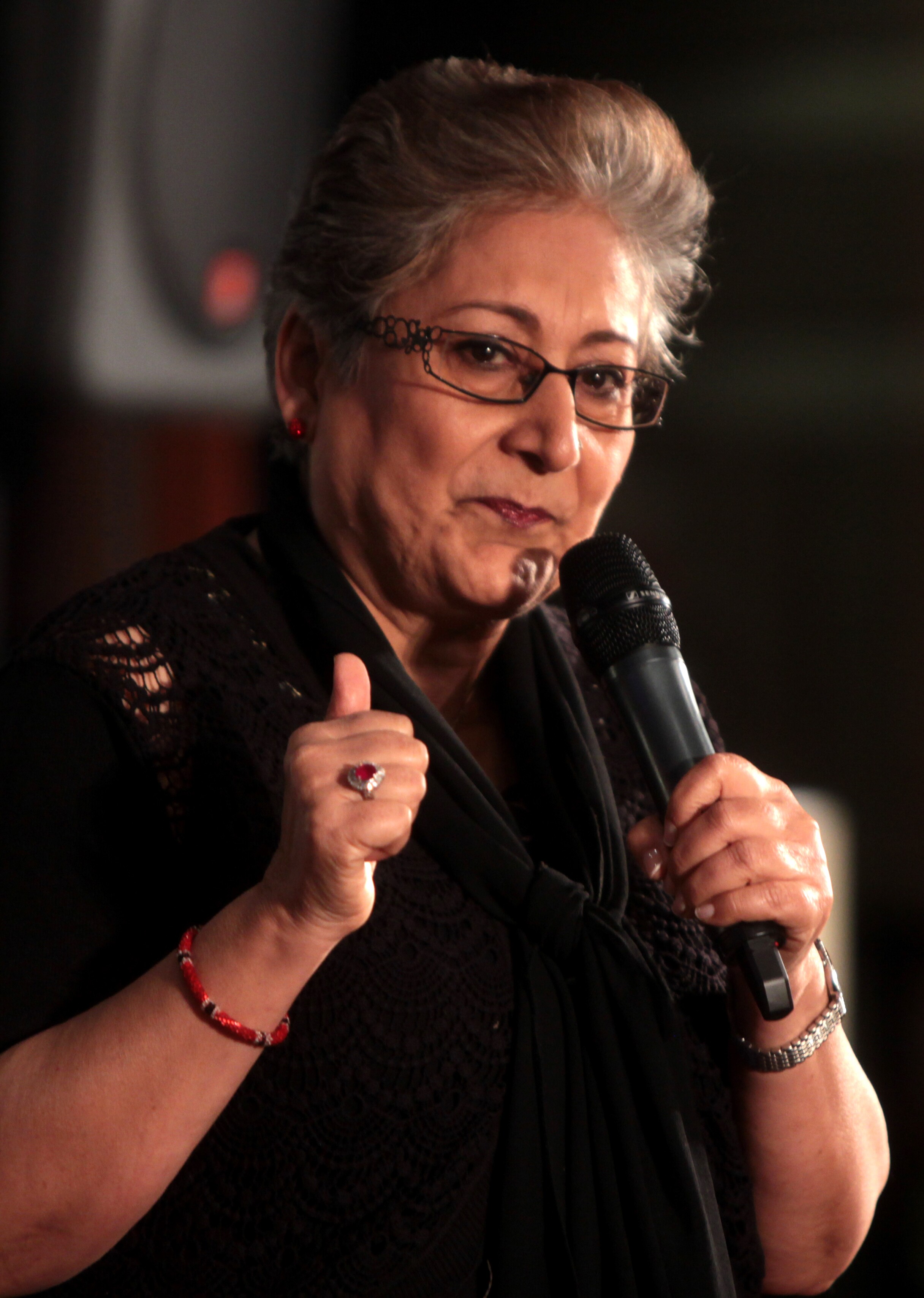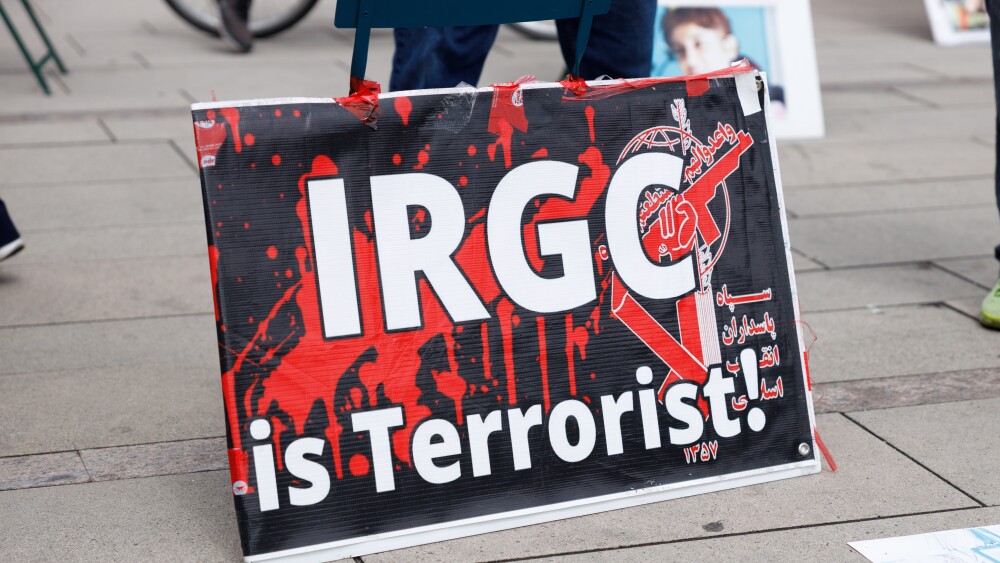The Islamic Revolutionary Guard Corps (IRGC)—the dreaded military and intelligence arm of Iran’s theocratic regime—has allegedly targeted Raheel Raza, a prominent Pakistani-Canadian journalist and human-rights activist known for her outspoken criticism of Islamist extremism and pro-Israel stance.
According to multiple cybersecurity sources, the IRGC’s cyber-espionage unit APT35, also known as “Charming Kitten,” has allegedly identified Raza for surveillance and targeting. The revelation underscores Iran’s enduring campaign of transnational repression in Canada, a country that designated the IRGC a terrorist organization in 2024, following its role in the 2020 downing of Ukraine International Airlines Flight 752, which killed 176 people.
This kind of cunning and evil intimidation will never stop me from speaking out to make the world the better place. The only way to defeat darkness is to keep shining a light on it.
The threat against Raza evokes chilling parallels to that faced by renowned author Salman Rushdie after publishing The Satanic Verses. In 2022, Rushdie was brutally stabbed on stage at a New York event, an attack that left him partially blind.
Transnational Repression: From Tehran to Toronto
Earlier this year, Canada’s public inquiry into foreign interference identified Iran as one of the states actively involved in meddling within the country. In her final report, Justice Marie-Josée Hogue concluded that Tehran was carrying out transnational repression, particularly targeting members of the Iranian-Canadian community.
The Canadian Centre for Cyber Security recently issued a warning that Iranian cyber-enabled transnational repression “will likely” remain a threat to Canada. It added that Iranian state-sponsored cyber threat actors would continue to conduct cyber espionage against individuals in Canada that the Iranian regime considers a threat, such as political activists, journalists, and human rights advocates. Officials in the United Kingdom have also accused the IRGC of plotting “potentially lethal threats to British citizens and UK residents.”

Raheel Raza, counter-Islamist extraordinaire.
(Gage Skidmore via Wikimedia),
Raza, who has spent decades promoting interfaith dialogue and exposing Islamist networks in the West, told Focus on Western Islamism (FWI) that she believes she is the latest target in that campaign.
The Pakistan Connection
The alleged IRGC targeting came to light after Raza visited Karachi in July. While there, she openly reaffirmed her support for Israel’s right to exist and defend itself — a position that sharply contrasts with Islamist narratives in the region.
Shortly after her return to Canada, Raza learned that her close friend, journalist and peace activist Imtiaz Mir, had been assassinated in Pakistan. Mir had been a vocal advocate for the Abraham Accords and a 2022 participant in a delegation to Israel aimed at fostering interfaith understanding.
On September 17, Mir was ambushed by gunmen in Karachi and later succumbed to his injuries. A little-known terrorist group Lashkar-e-Tharallah claimed responsibility, explicitly citing his ties to Israel and his interfaith efforts. The group is reportedly linked to the Iranian regime.
“The day after Mir’s assassination,” Raza said, “my family and friends began receiving anonymous phone calls asking for my whereabouts. I don’t believe this is a coincidence.”
Cyber Warnings
In early October, Raza received a formal warning from Quantalytics Inc., a U.S.-based cybersecurity firm. The firm informed her that it had exfiltrated a document from APT35 — the IRGC’s cyber-espionage unit — containing her profile and photograph, suggesting she had been flagged as a target.
Days later, another trusted U.S. source confirmed that Raza was on the IRGC’s radar. The source connected her with Holistic Resilience, a Los Angeles-based organization that monitors IRGC operations online. The firm reported that the IRGC had posted Raza’s profile and personal information on its internal platform and on X (formerly Twitter) to alert its proxies.
“When nation states target you, they will get to you regardless of what you do,” the firm warned Raza. “They hire small groups of hackers who are rewarded for surveilling and intimidating anyone who challenges their regime.”
وقتی هکرهای سپاه پاسداران، APT35 ایمیل کسی را مورد نفوذ قرار میدهند، آنها توسط ابزاری که دارند تمام ایمیلها را دانلود میکنند و بعد طبقهبندی میکنند، این یک نمونه گزارشی است که آنها آماده کردند برای یکی از قربانیان که ساکن کانادا است. https://t.co/tFAWuy6MUg https://t.co/z3gurScmMr pic.twitter.com/48E5OthVnX
— Nariman Gharib (@NarimanGharib) October 1, 2025
Screenshots shared on X by Iranian dissident Nariman Gharib, a London-based cybersecurity researcher, corroborate these claims. Gharib posted images showing IRGC hackers classifying data in Farsi about Canadian targets after breaching their email accounts — part of a broader campaign of “digital doxing” meant to enable real-world harassment.
APT35: Tehran’s One-of-Many Cyber Weapons
The APT35 hacking group is one of Tehran’s most sophisticated cyber units. It routinely targets journalists, activists, and dissidents who expose Iran’s human rights abuses or support Israel. The group uses phishing campaigns, identity theft, and malware to infiltrate personal devices and steal sensitive data.
In October, internal rosters and operational documents from APT35 were leaked on GitHub, exposing the extent of its reach and confirming links to the IRGC’s intelligence directorate.
A Pattern of Intimidation
For Raza, this is not the first encounter with Islamist intimidation. She told FWI that she received her first death threats following the 9/11 attacks in New York, when she began speaking publicly against jihadist violence. In 2005, she received additional threats after leading the first-ever mixed-gender Islamic prayer congregation in Toronto.
During the pro-Hamas protests that took place after October 7, Raza again became a target. “I received unsolicited mail at my home — clear signs that those targeting me knew where I lived,” she told FWI.
Despite the latest threats, Raza remains defiant. “As a mother, grandmother and proud Canadian who has worked at bringing communities together all my life, am I going to be scared of a regime that is threatened by women? My goal as a human rights activist is to uplift women’s rights and for the youth to find a safe space. If by doing this, I threaten an entire regime, then so be it.”
Another Canadian Vulnerability
Raza’s case highlights a growing vulnerability in Canada’s approach to foreign malign influence. While the government has condemned Iran’s human rights abuses, enforcement against its networks on Canadian soil remains limited.
Iran’s ability to allegedly target a Canadian citizen on Canadian soil—through digital and psychological warfare—demonstrates the regime’s flagrant transnational repression capabilities and Canada’s lack of preparedness.
As the ordeals of Rushdie and Raza demonstrate, the IRGC’s campaign of intimidation reaches far beyond Iranian dissidents — ensnaring anyone who dares to challenge Islamist ideology.
In the words of Raza herself: “This kind of cunning and evil intimidation will never stop me from speaking out to make the world the better place. The only way to defeat darkness is to keep shining a light on it.”


